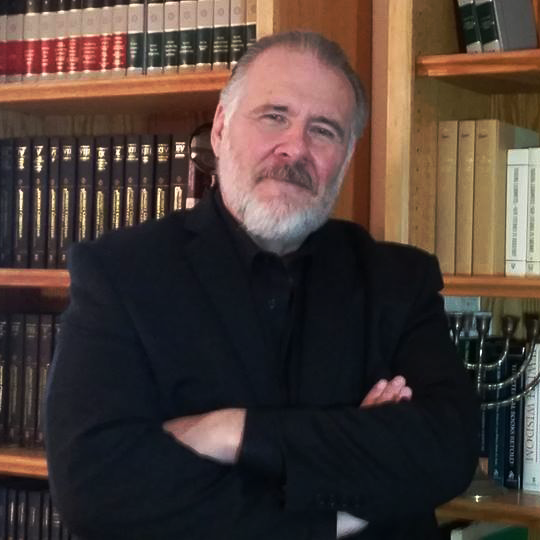Israel Today Resources:
-
 Hope Rising, Messianic Promise
Recommended donation: $20.00
Hope Rising, Messianic Promise
Recommended donation: $20.00
Add to cart
-
 Song of Song: The Greatest Lover
Recommended donation: $18.00
Song of Song: The Greatest Lover
Recommended donation: $18.00
Add to cart
-
 Divine Mysteries
Recommended donation: $15.00
Divine Mysteries
Recommended donation: $15.00
Add to cart
-

Come and See, Psalm 91, pt. 4
Part Four, Come, and See! Psalm 91:7ŌĆō8
┬ĀŌĆ£A thousand may fall at your side and ten thousand at your right hand, but it shall not approach you. You will only look on with your eyes and see the recompense of the wickedŌĆØ (vv.7ŌĆō8).
At your side is referencing the left side, as compared to the right (hand) side. It is a Hebraic poetic nuance. The right hand emphasizes strength.┬ĀIt is referring to the ŌĆ£arrowŌĆØ in verse 5, the pestilence, the envoys of evil and destruction.
┬ĀShall not approach you comforts us in knowing that we who believe and trust in God will be secure. Multitudes who do not have GodŌĆÖs protection, because of their unbelief, will fall around us. However, believers need not worry.
Your eyes and see: Because no harm comes to the believer, they will see the wicked defeated with their very own eyes. With their own eyes, they will see GodŌĆÖs power.┬ĀJesus said, ŌĆ£Come, andŌĆ”seeŌĆØ ┬Ā38┬ĀAnd Jesus turned and saw them following, and said to them,┬ĀŌĆ£What do you seek?ŌĆØ┬ĀThey said to Him, ŌĆ£Rabbi (which translated means Teacher), where are You staying?ŌĆØ┬Ā39┬ĀHe said to them,┬ĀŌĆ£Come, and you will see.ŌĆØ┬ĀSo they came and saw where He was staying; and they stayed with Him that day, for it was about the┬Ātenth hour (10am Roman time, or 4pm Jewish time).┬Ā40┬ĀOne of the two who heard John┬Āspeak┬Āand followed Him, was Andrew, Simon PeterŌĆÖs brother.┬Ā41┬ĀHe found first his own brother Simon and said to him, ŌĆ£We have found the┬ĀMessiahŌĆØ (which translated means┬ĀChrist) ŌĆō [John 1:38 ŌĆō 41].
Andrew said to Simon, ŌĆ£We have found the MessiahŌĆØ (John 1:41). To ŌĆ£comeŌĆØ is an act of faith. Faith opens oneŌĆÖs eyes to see the Messiah.
The enemy attacks us all. ŌĆ£When the devil had finished every temptation, he left Him until an opportune timeŌĆØ (Luke 4:13).┬ĀSatan tempted Jesus for forty days in the wilderness, but Jesus defeated Satan by quoting Scripture.┬ĀSatan left Him for a season ŌĆ£until an opportune time,ŌĆØ which was during the agony of Gethsemane. ┬Ā“Then He said to them, ŌĆśMy soul is deeply grieved, to the point of death; remain here and keep watch with Me.ŌĆÖ And He went a little beyond them, and fell on His face and prayed, saying, ŌĆśMy Father, if it is possible, let this cup pass from Me; yet not as I will, but as You will.ŌĆÖŌĆ”He went away again a second time and prayed, saying, ŌĆśMy Father, if this cannot pass away unless I drink it, Your will be done.ŌĆÖŌĆ”And He left them again, and went away and prayed a third time, saying the same thing once more.ŌĆØ (Matt. 26:38ŌĆō39, 42, and 44).┬ĀSatanŌĆÖs final onslaught against Jesus as the ŌĆ£Son of ManŌĆØ was at Gethsemane. ŌĆ£Son of ManŌĆØ is a messianic term which implies His humanity, in contrast to the term ŌĆ£Son of GodŌĆØ which implies His divinity. Jesus was both fully ŌĆ£humanŌĆØ and fully ŌĆ£God.ŌĆØ
The cup refers to His approaching death (Matt. 20:22). His humanity struggled and was tested in the garden. He was about to taste the pungent filth in the cup of death for the sin of the world. ┬ĀIf this cup may not pass awayŌĆ”thy will be done is a Greek nuance that something is determined as fulfilled, that, it is true.┬ĀThe Son of Man acquiesced to the FatherŌĆÖs will fulfilling His destiny as the Son of God who became the Passover lamb, the Savior of the world.┬ĀHe made it possible for sinners to become sons (Greek: tekna ŌĆö children) of God. His agony, His test, His moment of surrender was the beginning of our salvation.┬ĀThe crucifixion was the victory of the Son of Man over SatanŌĆÖs test.┬ĀHis submission at Gethsemane surrendering to the fact that He was to die and become the ŌĆ£Sin Offering,ŌĆØ the sacrifice, to save humanity from sin, changed humanityŌĆÖs compass forever.┬ĀGethsemane means ŌĆ£oil pressŌĆØ indicating the Son of Man was pressed into submission (ŌĆ£His sweat became like drops of bloodŌĆØ (Luke 22:44)) to the will of the Father.┬ĀAs a result, every person can now enter the presence of God because of what the Son of Man did. Through Jesus, anyone can ŌĆ£Come, andŌĆ”see.ŌĆØ
┬ĀPoints to Ponder:
- Satan attacks us all. Jesus was attacked.
The Lord prayed three times before complete surrender to the FatherŌĆÖs will.┬ĀPaul prayed three times to the Lord about a ŌĆ£thorn in the flesh.ŌĆØ God said no, that His grace was sufficient (2 Cor. 12:7ŌĆō10).┬ĀThere were two attempts to heal the blind man at Bethsaida (Mark 8:22ŌĆō25).┬ĀWhen the trials come, believers pray. Sometimes the answer comes swiftly, and at times slowly, but an answer will comeŌĆöeither yes or no.
- Jesus has made it possible for our redemption and peace.
- We are not victims; we are conquerors.
- People who havenŌĆÖt learned how to love often have a victimŌĆÖs mentality.
- People who love do not feel limited. ŌĆ£Because he has loved Me, therefore I will deliver himŌĆØ (Ps. 91:14).
┬Ā“O Lord, who hast mercy upon all, take away from me my sins,
and mercifully kindle in me the fire of thy Holy Spirit.
Take away from me the heart of stone,
and give me a heart of flesh,
a heart to love and adore thee,
a heart to delight in thee,
to follow and to enjoy thee,
for Christ’s sake.” ┬Ā–┬ĀAmbrose of Milan (ca. AD 339ŌĆō397)


